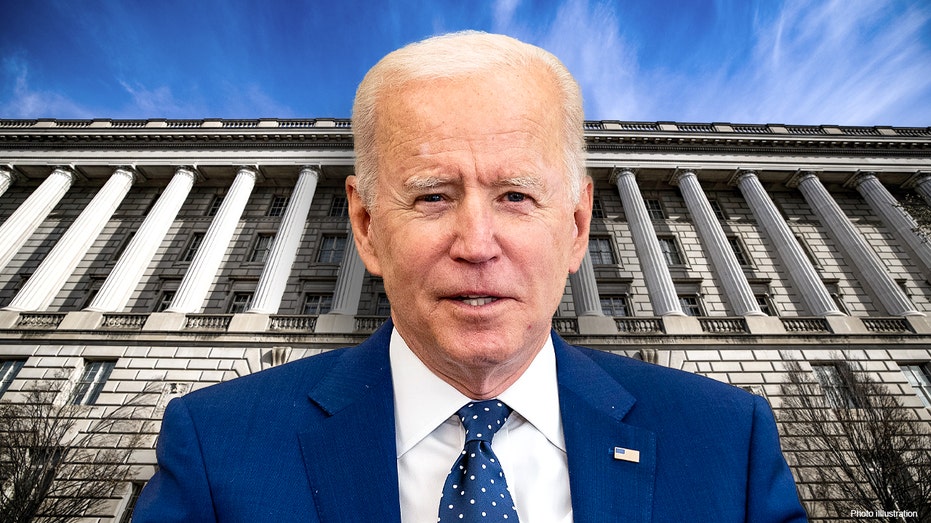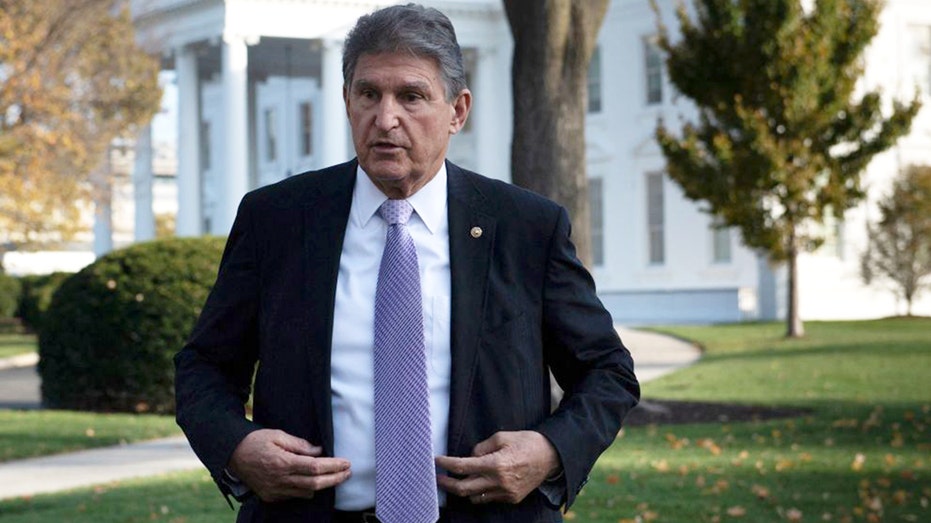Former IRS whistleblower says government will target middle class under Dems' inflation bill: It's 'bulls--t'
Billionaires are probably 'sitting back laughing right now,' former IRS lawyer William Henck tells FOX Business
William Henck, a former Internal Revenue Service (IRS) lawyer who was forced out after making allegations of internal malfeasance, said the government will target middle-income Americans with new audits under the Inflation Reduction Act.
Henck, who worked at the IRS for 30 years until departing in 2017, slammed the IRS and others who have argued additional funding would only result in increased audits for billionaires and corporations. The Inflation Reduction Act, which President Biden is slated to sign into law this week, would nearly double the IRS' budget, appropriating an additional $79 billion to the agency over the next decade.
"The idea that they're going to open things up and go after these big billionaires and large corporations is quite frankly bulls--t," Henck told FOX Business in an interview. "It's not going to happen. They're going to give themselves bonuses and promotions and really nice conferences."
"The big corporations and the billionaires are probably sitting back laughing right now," he continued.
MOST AMERICANS WILL FEEL TAX PAIN FROM DEM INFLATION BILL DESPITE BIDEN'S PAST PROMISES: ANALYSIS

President Biden is scheduled to sign the Inflation Reduction Act on Tuesday. (Doug Mills/Pool/Sipa | Samuel Corum/Bloomberg)
Henck added that he thought it was "insane" to double the agency's budget. He said the IRS will target businesses who don't have enough money to hire Washington lobbyists.
Americans with an annual income of less than $75,000 would be subject to nearly 711,000 new IRS audits under the legislation, according to a House GOP analysis that used historic audit rates. By comparison, individuals making more than $500,000 will receive about 95,000 additional audits as a result of the Inflation Reduction Act.
REPUBLICANS SLAM DEMS' PLANS TO INCREASE TAXES AGAIN IN 2023: 'THE LEFT'S HOLY GRAIL IS TAX HIKES'
However, IRS Commissioner Charles Rettig pushed back on reports of new audits, saying "audit rates" would remain the same and that the bill was "absolutely not about increasing audit scrutiny on small businesses or middle-income Americans." White House press secretary Karine Jean-Pierre told reporters last week that there would be no new audits for people making less than $400,000 per year.
"There will be considerable incentive to basically to shake down taxpayers, and the advantage the IRS has is they have basically unlimited resources and no accountability, whereas a taxpayer has to weigh the cost of accountants, tax lawyers — fighting something in tax court," Henck told FOX Business.

Sen. Joe Manchin, D-W.Va., was a lead sponsor of the Inflation Reduction Act, which he unveiled in late July after months of closed-door negotiations. (Brendan Smialowski/AFP via Getty Images / Getty Images)
New hires at the IRS will also be assigned simpler cases, Henck said, meaning an added focus on small-business audits.
"If you own a roofing company, you better count on getting audited because that's what they're going to be doing," he continued. "They're going to be going after your car dealerships, roofing companies."
Henck said during his time at the agency, he had observed IRS agents specifically targeting elderly taxpayers, some of whom were World War II veterans, because they could easily be forced into settlements.
INFLATION REDUCTION ACT: WHAT TAX HIKES ARE IN THE BILL?
"I protested both internally and externally, but I was ignored," he told FOX Business. "In their last days on Earth, these taxpayers were being bullied by the same government they had fought for as young men and no one cared."
"This is the agency that is going to double in size."
These are the people we’re talking about in regard to new audits: Russ Vought
Former Office of Management and Budget director Russ Vought discusses what the issues are with "supercharging" the IRS on "Fox Business Tonight."
In 2013, Henck told the Washington Post that the IRS team he was assigned to advise on legal matters was told by senior officials to "stand down" while investigating a paper company that took advantage of a biofuel tax credit. Henck, who believed the credit was taxable, said the company didn't list the credit as taxable income in its returns, a matter his team identified as a potential issue.
Other paper companies quickly filed refund claims after the IRS backed down from its investigation into the company's classification of the tax credits, Henck added. As a result, the federal government paid paper companies $8 billion in 2009 amid the financial crisis, the Washington Post reported at the time.
CLICK HERE TO READ MORE ON FOX BUSINESS
The IRS then opened an investigation into Henck for allegedly revealing sensitive information when he spoke with the media in 2013, leading to his termination in 2017.






















